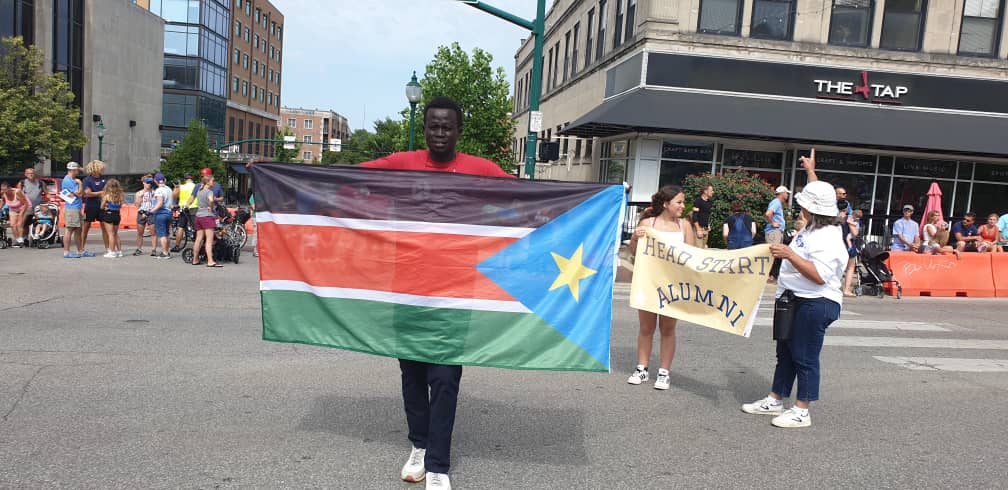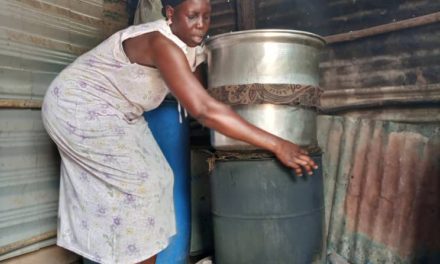
Human Rights or Security: Doom for SDGs as Priorities Are Misplaced.

It is Monday morning in Juba. As the beautiful sun rises, the city noises get louder and louder, with vehicles and pedestrians rushing for their various daily activities. Commercial motorbikes (Boda Bodas) and three-wheelers (Rackshas) move. Others choose to drive in the opposite direction without regard for the law or other road users. Group of people sitting in teashops, some selling bread and fruits along the road. Dogs roam the streets cautiously as if they have just been released from a maximum-security prison.
South Sudanese are busy looking for ways to earn a living. The economy is in very bad shape. Prices are skyrocketing, making it harder for people to make ends meet. The present situation in the country is highly linked to the nature of its political, cultural, and ethnic systems and its long history of armed conflict. Armed conflict and related atrocities have negatively affected people’s views of other ethnic groups. Even though a peace agreement is reached, how peaceful can South Sudan be so long as disunity, selfishness, corruption, and injustice continue within the nation?
According to the 2021 Humanitarian Needs Overview indicated in the 2023 UNHCR report entitled: culture, context and mental health and Psychosocial Well-being of Refugees and Internally Displaced Persons from South Sudan, 8.3 million people in South Sudan, over two-thirds of the total population, were estimated to need humanitarian assistance in 2021. Forced displacement continued at a high rate with two million internally displaced within South Sudan. The situation remains the largest refugee crisis in Africa with close to 2.3 million South Sudanese refugees living in the five main neighboring host countries. The report also showed data from the World Bank stating that four out of five South Sudanese are living under the international poverty line of $1.90 per day. The poverty rate is expected to remain stagnant at 80 percent in the coming years. The country´s public health indicators are among the poorest globally, Malaria caused half of all mortalities in 2021. Maternal mortality in the country is one of the highest in the world, with 789 per 100,000 live births.
The ongoing violence in South Sudan has had major effects on the psychological well-being of the South Sudanese people. Refugees and other forcibly displaced South Sudanese have had to cope with losses, family disruptions, and disconnection from their community support systems. The prevalence of mental disorders such as depression, anxiety disorders, and post-traumatic stress disorder among South Sudanese is high.
While addressing the UN Security Council on 15th September, Mr. Nicholas Haysom Special Representative of the Secretary-General, and Head of UNMISS called on the unity Government to allocate national budget funding to meet its own humanitarian and public need, “I note that an overall squeeze in humanitarian funding continues, and reductions in anticipated food distribution have already sparked tensions and protests in the IDP camp in Bentiu.”
Despite all the urgent reasons for seeking world peace, the hard effort put into negotiations, the determination, and desires of world leaders, and despite all the intelligence of their counselors, peace has become like a mirage at least for South Sudan. This raises a question of what the government’s priorities are!
As South Sudan races to complete its democratic transition by holding its first-ever national elections in December 2024 to bring the current political differences as well as ending the two different forces in the country, challenges to that transition remain including the unification of the forces. Something the government said is proving difficult because they have no guns to give the graduated unified force prompting the president to ask the UN while addressing the General Assembly to lift the arms embargo imposed on them, “we call upon the United Nations to lift the arms embargo imposed on us to aid peace implementation and to secure the elections. The arms embargo has impeded the implementation of security arrangements because the effective deployment of the unified forces we have graduated cannot happen without arms,” Kiir lamented.
Furthermore, how much would any peace setup mean to citizens who fear going out at night, or even feel insecure inside their homes behind locked doors?
Even though the unified forces are equipped with new guns, what of the internal disunity within the nation?
World leaders either overlook or prefer to ignore the fact that War is not caused by bombs battleships or bullets. War is caused by people. Any peace arrangement the nations make will never remove human selfishness. And that is the root cause of all disunity, violent clashes, and war. When faced with complex problems, happiness and inner peace are elusive.
On May 30, 2023, the UN Security Council adopted resolution 2683 (2023), which extended for one year the sanctions regime imposed on South Sudan in 2018, including assets freeze, travel bans, and an arms embargo. The Council cited and strongly condemned past and ongoing violations of human rights and international humanitarian law by all parties, including armed groups and national security forces. It further condemned the targeting of civil society, including journalists, human rights defenders, and humanitarian personnel, emphasizing that the Revitalized Transitional Government of National Unity bears the primary responsibility to protect its population from genocide, war crimes, and crimes against humanity.
A move civil society and human rights organizations argue is still crucial for civilian protection and lifting it could lead to further abuses. Referring to the embargo imposed on South Sudan, the Executive Director of Community Empowerment for Progress (CEPO) Edmond Yakani pointing to rebellions and conflicts happening in some parts of the country said “The increase in the growth of gun class and increase in the clashes among informal armed group across the country are justifying the importance of having arms embargo from the UNSC as a last resort option for securing civilians’ protection,” Yakani said.
During a press briefing On the International Day for the Total Elimination of Nuclear Weapons Stéphane Dujarric, Spokesperson for the UN Secretary-General, gave a summary of the situation in South Sudan, “our peacekeeping colleagues are reporting that civilians continue to endure ongoing violence, with 395 civilians killed between April and June this year alone. According to a Human Rights Brief released today by the peacekeeping mission in South Sudan, 222 incidents of violence against civilians were documented, including 128 children, 166 abductees, and 29 victims of conflict-related sexual violence,” he said.
The UN has come under intense criticism. The body is accused of being found wanting when it comes to addressing global issues with references made to the war in Ukraine, the conflict in Palestine, and the continuous threats by countries allegedly building nuclear weapons prompting the fearless UN Secretary-General, Antonio Guterres to issue a compelling call for nuclear disarmament and a renewed commitment to peaceful dialogue. “Nuclear disarmament is not just a moral imperative; it is a matter of our collective survival. We cannot afford to ignore the existential threat that nuclear weapons pose,” Guterres stated while giving his remarks On the International Day for the Total Elimination of Nuclear Weapons.




















Recent Comments